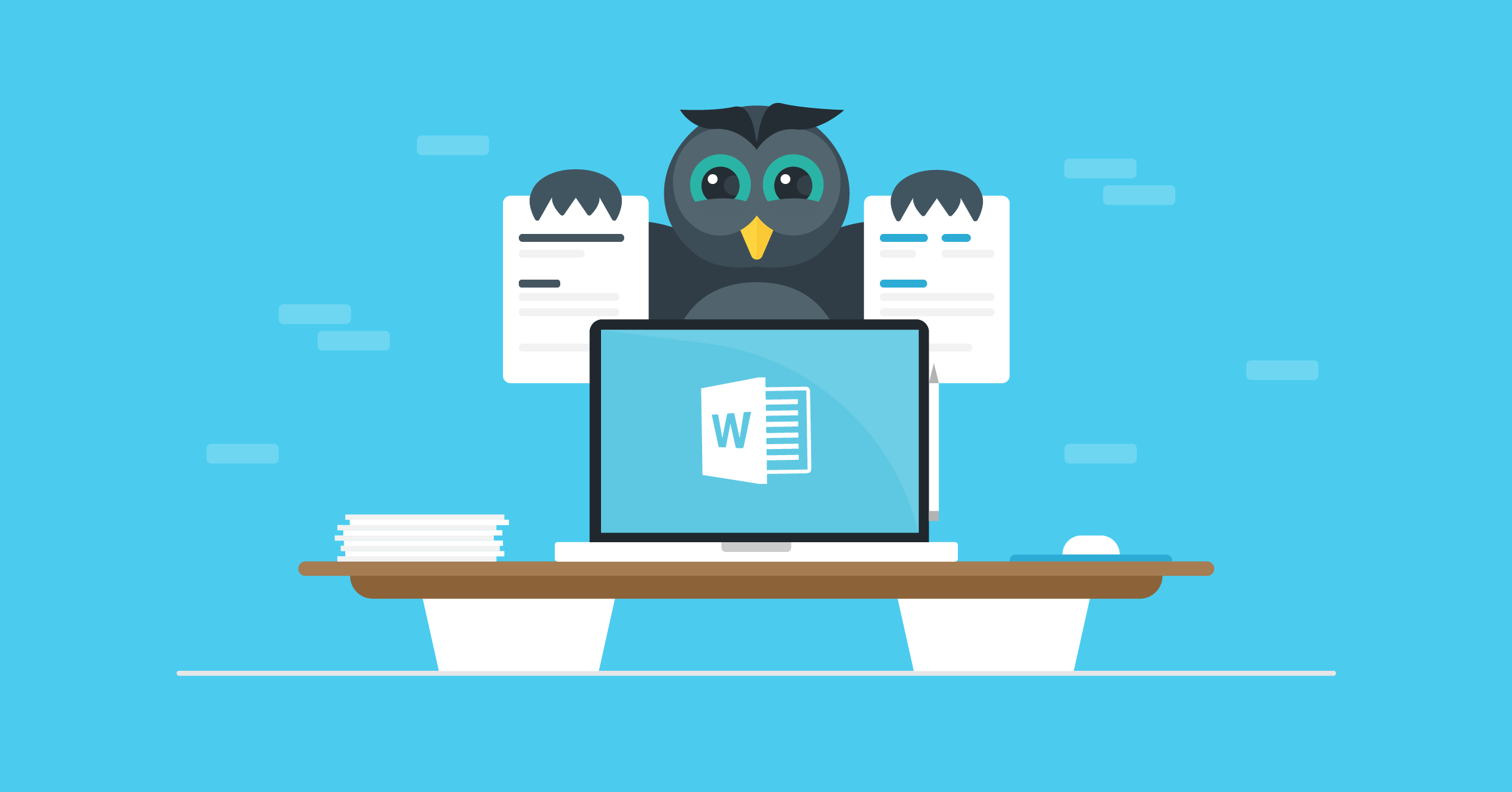
As an accountant, you’re a trusted individual that requires accuracy at all times.
You’ll be faced with many challenging tasks that you must get right, but perhaps you didn’t expect to face one so soon.
Your resume!
What does a good accountant resume look like, anyway?
With so many individuals competing for the top roles, you can’t leave any questions unanswered.
But don’t worry, this guide has you covered!
This guide will show you:
- An example of a finished account resume that works
- How to write an accountant resume that’ll fill up your interview diary
- How to make your accountant resume stand out [with top tips & tricks]
Before we get into the details, here’s an example of a finished accountant resume, created with our very own resume builder:


Looks good, right?! Follow the steps below to create an accountant resume that get results, just like the above example.
Check out these related resume examples if you're on the lookout for a different position in the field:
- Bookkeeper Resume
- Business Analyst Resume
- Financial Analyst Resume
- Bank Teller Resume
- Banking Resume
- MBA Resume
- Executive Assistant Resume
- Consultant Resume
- Administrative Assistant Resume
- Office Assistant Resume
- Career Change Resume
How to Format an Accountant Resume
Before you can impress the hiring manager with your accounting talents, you need pick the best format.
So which resume format should you choose?
The “reverse-chronological” format is the most used, and we understand why. The format is easy to read and allows the hiring manager to immediately see why you’ll make a great accountant.

The following resume formats can also work:
- Functional Resume – If your accountancy skills are stronger than your on-the-job experience, this resume format is recommended. It’s also ideal if you have gaps in your employment history or have changed career path
- Combination Resume – This format is a hybrid between the “Functional” and “Reverse-Chronological” formats. As such, it values both skills AND work experience. People use a combination resume when they have a lot of experience
Once your format is ready, you need to organize your resume layout.
Use an Accountant Resume Template
As an accountant, you present data in a structured way.
Your resume is no different.
You can try creating your own resume with Word, but you will likely run into a bunch of formatting issues.
This is why we recommend accountants to use a resume template.
What to Include in an Accountant Resume
The main sections in an accountant resume are:
- Work Experience
- Contact Information
- Skills
- Education
Want to go a step further? You can also add these optional sections:
- Awards & Certification
- Languages
- Interests & Hobbies
Read on to learn what to write for each of these sections.
You can learn even more by viewing our guide on What to Put on a Resume.
How to Correctly Display your Contact Information
Just like your client’s accounts, this section just needs to be factually-correct.
Mistakes in this section can result in the hiring manager not being able to contact you – disaster!
The contact information section must include:
- Full Name
- Title – Align this to the exact role you’re applying for, which is “Accountant”
- Phone Number – Check this for accuracy
- Email Address – Use a professional email address (firstname.lastname@gmail.com), not your childhood email (edloveshamsters@gmail.com)
- (Optional) Location - Applying for a job abroad? Mention your location
Correct Example:
- Edward Fakester - Accountant. 101-358-6095. efakestar@gmail.com
Incorrect Example:
- Edward Fakester - Numbers king. 101-358-6095. edwardthecat@gmail.com
How to Write an Accountant Resume Summary or Objective
Here’s a fact for you – recruiters only spend a few seconds on each resume!
But should we really be surprised by this?
Well, not when you consider the competitive nature of the accounting market.
This means you have to hook the recruiter in just a few seconds.
But how can you do this?
The answer is simple: use an objective or resume summary.
Essentially, these are powerful introductions that are placed on top of your resume.

So, what is the difference between the two sections?
A resume summary is a 2-4 sentence summary of your professional experiences and achievements.
Accountant Resume Summary Example
- Accountant with a history of accurately and efficiently supporting accounting activities for a diverse range of clientele. 5+ years of experience in presenting data, analyzing cost control, providing financial reports, and delivering profit and loss statements under time pressures. Achievements include saving Company X $52,000 by fixing a tax reporting error.
On the other hand, a resume objective is a 2-4 sentence snapshot of your professional goals and aspirations.
Accountant Resume Objective Example
- Motivated accountancy student looking for a junior accounting job at Company X. Passionate about attention to detail and numbers. Experience balancing the books for local food stalls while at University X. Skilled in MS Office, FreshBooks, QuickBooks, Sage, and Microsoft Dynamics
So, which one is best, summary or objective?
Generally, experienced accounts should go with a summary. An objective is suited to those accounting graduates who lack the industry experience.
How to Make Your Accountant Work Experience Stand Out
An accountant’s job is all about accuracy.
As such, the recruiter needs to know that you can do a perfect job.
The easiest way to do this is to list your work experience.
Here’s the best structure:
- Position name
- Company Name
- Dates
- Responsibilities & Achievements
Here’s an example:
AccountantDiscoverGrowthDigital03/2016 - 07/2020- Corrected account errors, which saved a total of $94,000
- Set-up a digital accountancy system for a 10% efficiency increase
- Processed 230+ Final Account Statements annually
- Complied with company procedures and federal laws
To make your work experience stand out from the crowd, you should focus on your most notable achievements. That way, your value is clear to see.
Instead of saying:
“In charge of accounts”
Say:
“Corrected account errors, which saved a total of $94,000”
Simply, the first statement is way too generic. It shows you were in charge of accounts, but it doesn’t show if you were successful or not.
The second statement shows that you saved the company $94,000. Hard numbers that prove your skills – nothing beats that!
What if You Don’t Have Work Experience?
Finished education and are now looking for your first accounting job?
Or maybe, you’ve learnt accounting from online courses, but have no real experience in the field?
No company wants to hire an inexperienced accountant.
But don’t threat – there are ways to show you have the skills to do a great job.
What really matters here is your accounting portfolio.
If you already have any examples of your accounting skills, feel free to upload them online and link it in your resume (we’re going to explain how in a bit).
If not, it isn’t too late.
Here are a couple of easy ways to build a portfolio (and get paid for it):
- Use a freelance platform, like UpWork, to pick up some gigs
- Offer your accounting knowledge to friends & acquaintances at a reduced price
If you’re a recent graduate, you might want to check out our guide on how to make a student resume!
Use Action Words to Make Your Accountant Resume POP!
- “Made”
- “Worked”
- “Managed”
…are just some of the words that are repeated in every single resume.
Do you want to separate your resume from the competition?
Then use some power words to make your achievements stand out:
- Conceptualized
- Determined
- Spearheaded
- Formulated
- Initiated
How to Correctly List your Education
It’s important for an accountant to have relevant qualifications.
With that said, you can keep your educational section simple.
Simply enter your qualifications in the follow format:
- Degree Type & Major
- University Name
- Years Studied
- GPA, Honours, Relevant Courses.
Here’s what it should look like:
B.A. in Accounting & FinanceBoston State University2014-2018- Relevant Courses: Finance Accounting, Foundations of Microeconomics, Management Accounting, Advanced Taxation, Auditing, International Banking
- GPA: 3.6
If you have some questions unanswered, the following information may help you:
What if I am still in education?
- Regardless of whether you’re a graduate of accountancy or still studying, you should still mention every year of education to date.
Should I include my education before degree level?
- Generally, only include your highest education. So, include your high school education if you don’t have a relevant degree for accountancy.
What wins, education or experience?
- Real accountancy experience trumps education, so work experience goes first on your resume.
Still not sure? Check out our guide on how to list education on a resume.
Top 25 Skills for an Accountant Resume
You need to do two things when writing a skills section:
- Look at the required skills that are listed in the job description
- Prove you have the skills
It’s as simple as that!
Here are some of the most common accountant skills:
Hard Skills for Accountants:
- Financial Statements
- Payroll
- Budgets
- IT Skills
- Asset Management
- State Tax Law
- Tax Compliance
- Corporate Tax
- Account Analysis
- Regulatory Filings
- MS Office
- Revenue Projections
- Account Reconciliation
- Profit and Loss
- Quickbooks
- Income Tax
- Invoices
- Tax Returns
- Payroll Taxes
- General Ledger
Soft Skills for an Accountant:
- Creative Thinking
- Communication
- Research
- Time-Management
- Organization
Pro Tip:
- Generally, only list your best soft skills. You see, every applicant puts a massive list of soft skills that are hard to back-up. Anyone can say they work well in a team, but not many are well-versed in tax compliance.
Here’s a more comprehensive list of 101+ must-have skills this year.
What Else Can You Include in an Accountant Resume?
So, those are the most important sections to put on an accountant resume.
But you can do even more.
Covering the most important sections should get you shortlisted, but adding a few extra sections can get your resume to the top of the pile.
Awards & Certifications
Have you won an award in an accountancy-related field?
Have you completed a course to improve your knowledge?
Whatever it is, make sure to mention it in your resume!
Here’s an example:
Awards & Certificates
- “Financial Accounting Fundamentals” – Coursera Certificate
- “Apprentice of the Year 2016” – LUCA Awards
- “Critical Thinking Masterclass” – MadeUpUniversity
Languages
Even though accountants deal with numbers, not words, being able to speak multiple languages is a useful skill to have. As such, list your languages if you have space.
Rank the languages by proficiency:
- Native
- Fluent
- Proficient
- Intermediate
- Basic
Interests & Hobbies
Now, you’re likely thinking, “why do I need to tell the recruiter about my book club?”
Well, your personal interests give an idea into the person you are.
Hobbies show that you’ll be a good part of the team, especially if you enjoy social activities.
Here’s which hobbies & interests you may want to mention.
Include a Cover Letter with Your Resume
Want to separate your application from the competition?
Craft a compelling cover letter!
This personal piece of content shows the company that you want to work for them, which is in direct contrast to other applicants that send dozens of generic resumes.
Here’s how to structure a winning cover letter:

You should complete the following sections:
Personal Contact Information
Your full name, profession, email, phone number, and location
Hiring Manager’s Contact Information
Full name, position, location, and email.
Opening Paragraph
You don’t have long to catch the recruiters attention, so use concise language to mention:
- The accountancy position you’re applying for
- Your experience summary and best achievement to date
The Body
Once you’ve captured their interest, you can delve into the following specifics:
- Why you want to be an accountant for the company
- What you know about the company
- How are your accounting skills relevant for the job
- Which similar industries or positions have you worked in before
Closing Paragraph
End the letter in a friendly way, you should:
- Conclude the main points of the letter
- Thank the hiring manager for the opportunity
- Finish with a call to action that allows the conversation to continue. We recommend, “At your earliest opportunity, I’d love to discuss more about how I can help company X”
Formal Salutations
End the letter in a professional manner. Something like, “Kind regards” or “Sincerely.”
For more inspiration, read our step-by-step guide on how to write a cover letter.
Key Takeaways
Congrats!
You’ve just given yourself the best chance of landing that accounting role.
But before you go, let’s total-up everything you’ve learned:
- Format your accounting resume correctly. Prioritize the reverse-chronological format, and then follow the best practices on content layout
- In your work experience section, highlight your best achievements, rather than your daily responsibilities
- Defeat the competition with a convincing cover letter



